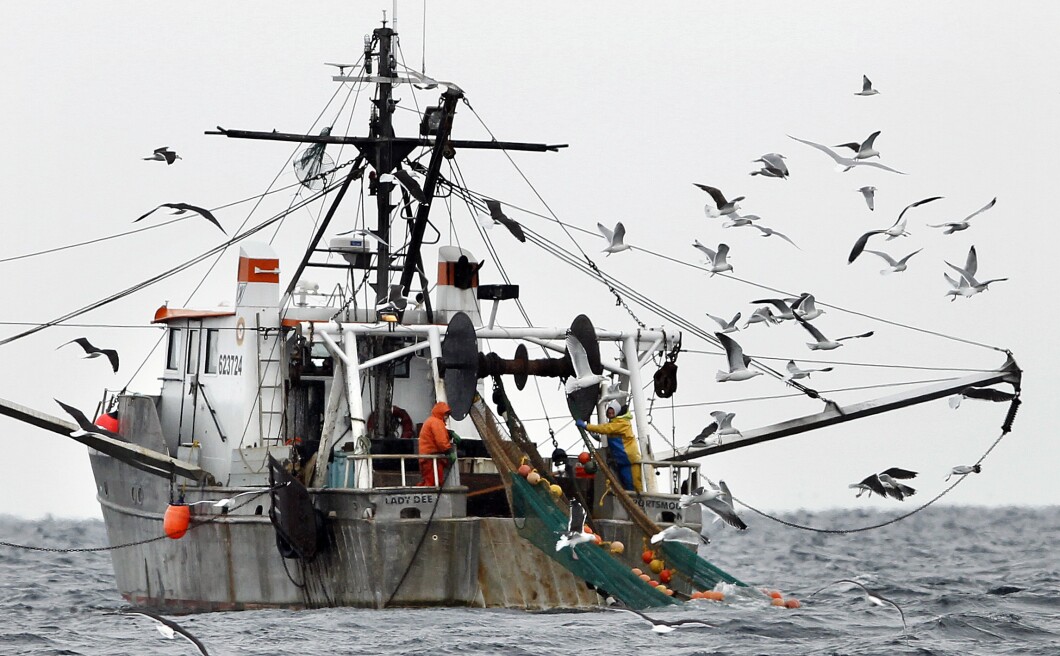
“Chevron deference” would sound to many like a snap choice about which gas station to use to fill up their car’s thirsty tank. Yet tied to the head-scratching name is one of the Supreme Court’s modern foundational decisions, which for nearly four decades has governed the extent to which federal agencies can issue business regulations.
That could change significantly with a Supreme Court case set to be heard this fall. At issue is how extensively, if at all, regulatory precedents established in the 1984 case Chevron v. NRDC can be applied. Under the Chevron doctrine, courts should defer to a federal agency’s reasonable interpretation of laws enacted by Congress and the president — even though many are written ambiguously.
MOST PEOPLE, INCLUDING DEMOCRATS, DISAPPROVE OF APPLIANCE ENERGY REGULATIONS: POLL
Chevron doctrine critics see the fall Supreme Court docket as a way finally to rein in meddling federal bureaucrats, symptoms of a creeping administrative state in which regulatory overreach is rampant, while defenders fret the 6-3 conservative high court majority is poised effectively to let business interests kill off environmental and other expertly crafted regulations created for the public interest.
And while Chevron deference was once relegated to wonky debates among law professors, it’s a mantra elected Republicans now increasingly invoke. House Republicans, holding a narrow 222-213 majority ahead of the 2024 elections, are using the doctrine as a cautionary tale of big government.
Under House Speaker Kevin McCarthy (R-CA), the House filed an amicus for plaintiffs in the Chevron case set to be heard by the Supreme Court this fall. It involves a group of New Jersey-based herring fishermen challenging a federal regulation they contend limits their catch, in Loper Bright Enterprises v. Raimondo.
“The Chevron framework makes it easier for unelected bureaucrats to weaponize federal regulations against the American people,” McCarthy said on July 24. “The Court should rein in the power of unelected bureaucrats and restore the separation of powers.”
‘David vs. Goliath’ case
The New Jersey fishermen say a 1976 federal law, the Magnuson-Stevens Act, could force them to forfeit 20% of their earnings to pay for at-sea monitors on their boats. Their complaint challenges a provision of the law requiring a government observer to be onboard during certain fishing expeditions, which, in some cases, also requires fishing companies to cover the observer’s salary.
Plaintiffs argue that is not within the National Marine Fisheries Service’s enforcement purview. They’re being represented in Loper Bright Enterprises v. Raimondo by Paul Clement, solicitor general in President George W. Bush’s administration and a veteran Supreme Court advocate.

While Clement is the lead attorney on the case, the herring fishermen are represented by the Cause of Action Institute. Co-counsel for the fishermen, Ryan Mulvey, described the case as a “classic David vs. Goliath story.” Small-business owners are up against a doctrine that “tips the scales of justice towards powerful federal agencies and away from citizens like the fishermen who are seeing their livelihoods threatened by a bureaucracy run amok.”

At a July 20 event hosted by the Federalist Society at the Mayflower Hotel in Washington, D.C., Clement told the Washington Examiner he believes that “over the long haul, small businesses will be much better off with a regime where Congress actually has to wrestle with things.” Clement said that one of the consequences of Congress grappling with problems is that “you might not love everything you get, but you do get a more durable-permanent solution than you would get with an executive order that can be ripped out the next time the administration changes.”

Chevron defense
Supreme Court justices agreed to take up the New Jersey fishermen case after a divided panel of the U.S. Court of Appeals for the D.C. Circuit ruled in August 2022 that the statute under federal law was reasonably read to allow an agency to require the industry to pay the cost of federal monitors. In a written dissent, Judge Justin Walker argued that “Congress unambiguously did not” authorize the agency to make fishermen “pay the wages of federal monitors who inspect them at sea.”
The “Chevron doctrine,” in its current form, has plenty of allies and defenders. They argue federal agencies possess a heightened level of knowledge and context to decide complex policy matters in their areas of expertise.
If Chevron were diminished, “One cost would be reduced uniformity in federal law, as different courts in different circuits adopted different interpretations of law that this Court does not have the institutional capacity to sort out,” according to an amicus curiae submitted by Thomas Merrill, a Columbia Law School professor.
Merrill said other costs might include “more decisions that are not well informed about highly technical or specialized areas of the law” or more decisions “that do not cohere well with complicated statutory schemes that are difficult for generalist judges to easily comprehend.”
Clement scoffed at those arguments.
“How much agency expertise does it take to say, ‘We don’t have enough money from Congress, so let’s make the regulator pay?'” Clement asked.
Still, Chevron doctrine supporters say Capitol Hill is the wrong place to decide complicated regulatory questions.
“Because Congress is not equipped to micromanage the day-to-day administration of the legislation that it passes, it must rely on federal agencies — under the supervision of the president — to carry out laws and policies according to their best good-faith interpretations,” Natural Resource Defense Council’s Jeff Turrentine wrote in a June 21 post on the group’s website.
Regulatory rollback
Overturning or weakening Chevron would mark a significant blow to the administrative state, a phrase first coined in a 1948 book of that title by Dwight Waldo, a political scientist and defining figure in modern public administration. Debates around this so-called fourth branch of government have persisted for decades.
Heavy regulation has drawn skepticism from a majority of Supreme Court justices in recent years. High court decisions have diminished the authority of federal agencies, such as the 2022 decision in West Virginia v. EPA, a 6-3 ruling limiting the Environmental Protection Agency’s ability to regulate carbon dioxide emissions under the Clean Air Act. The justices decided a similar case in June, Sackett v. EPA, a unanimous decision that split 5-4, as to how far the nine justices would go in limiting the EPA’s authority to regulate the nation’s wetlands and waterways.
CLICK HERE TO READ MORE FROM THE WASHINGTON EXAMINER
In West Virginia, the majority ruled that the EPA’s policy, put in place during President Barack Obama’s administration, involved a “major question” and that the agency was out of its scope in attempts to regulate without specific permission from Congress to do so. The novel “major questions doctrine” embrace from the conservative supermajority signaled a shift away from the typical deference to Chevron while also signaling a pivot from how the high court traditionally goes about interpreting statutes.
The Raimondo case is likely to be argued in the fall, with a decision to follow sometime in 2024. Justice Ketanji Brown Jackson noted in an order that she would recuse from the case, presumably due to her participation in the case when she was a jurist on the D.C. Circuit.





